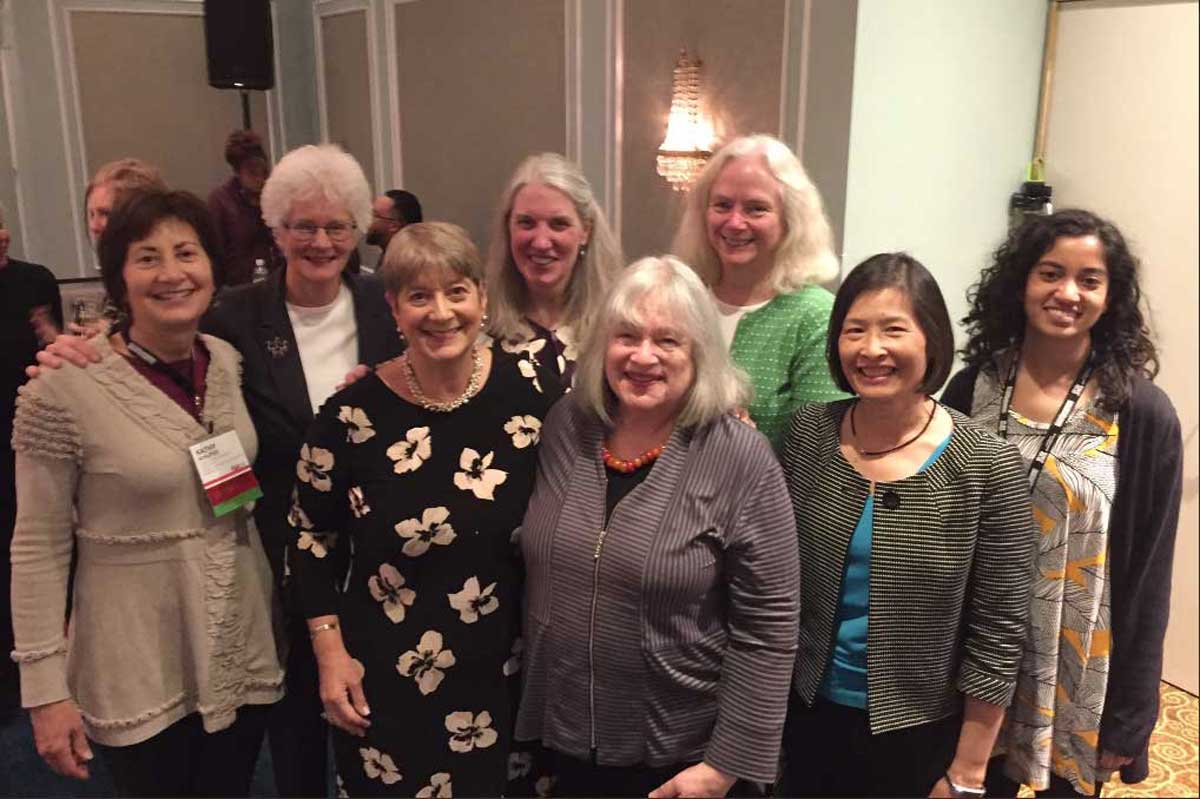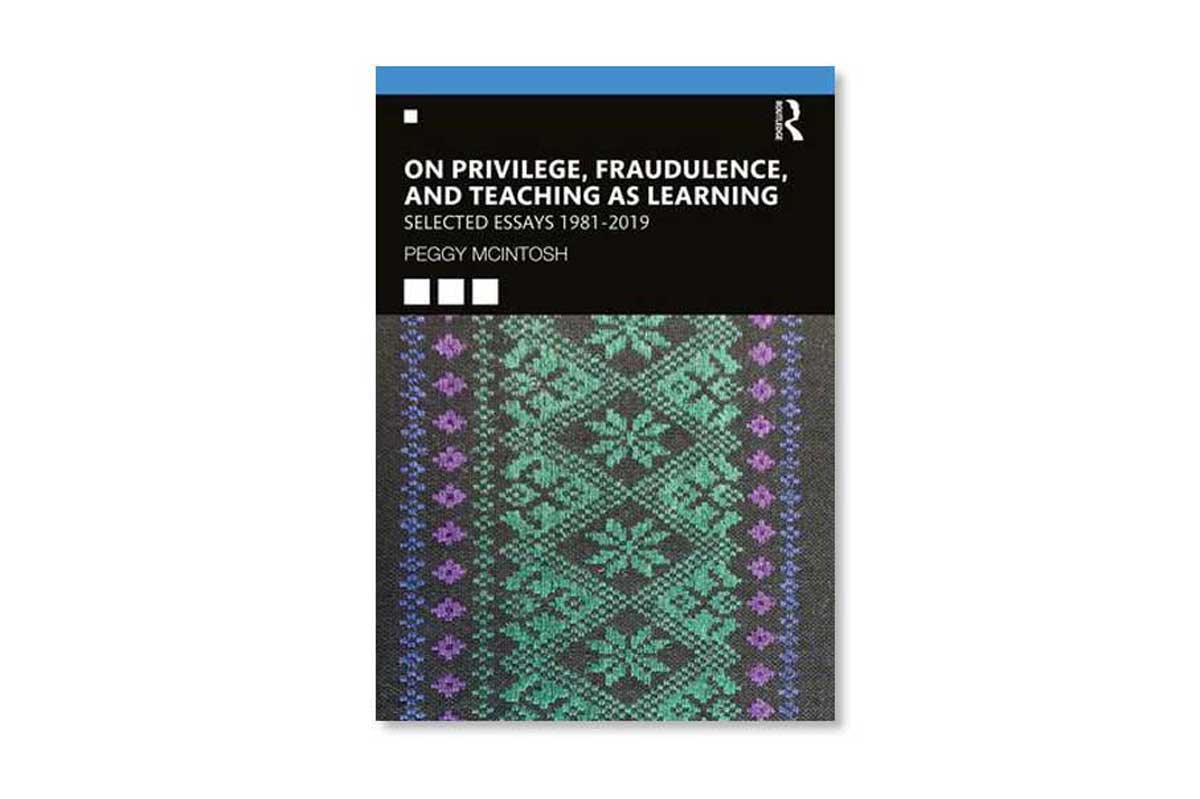 A new study from economist Sari Pekkala Kerr, Ph.D., highlights differences in networking habits of immigrant and non-immigrant entrepreneurs.
A new study from economist Sari Pekkala Kerr, Ph.D., highlights differences in networking habits of immigrant and non-immigrant entrepreneurs.
 National Institute on Out-of-School Time staff at 2019 National AfterSchool Association Annual Convention in New York, NYEllen Gannet, M.Ed., was honored during the 2019 National AfterSchool Association Annual Convention for her decades of leadership in the out-of-school time field.
National Institute on Out-of-School Time staff at 2019 National AfterSchool Association Annual Convention in New York, NYEllen Gannet, M.Ed., was honored during the 2019 National AfterSchool Association Annual Convention for her decades of leadership in the out-of-school time field.
 Peggy McIntosh's book: On Privilege, Fraudulence, and Teaching as Learning: Selected Essays 1981-2019Peggy McIntosh, Ph.D., a leading voice on white privilege and anti-racism work, shares a collection of her essays on privilege and power in a new book.
Peggy McIntosh's book: On Privilege, Fraudulence, and Teaching as Learning: Selected Essays 1981-2019Peggy McIntosh, Ph.D., a leading voice on white privilege and anti-racism work, shares a collection of her essays on privilege and power in a new book.
Wellesley Centers for Women will celebrate its 50th anniversary in 2024 and in recognition of this milestone has launched a history project, “Looking Back & Looking Forward: A Half Century of Social Change, 1974-2024.” This multi-year initiative will feature a collection of historical information about the foundation, growth, projects, events, social impact of, and the people and partners related to the Centers’ research-and-action work. Progressing until 2024, pieces for the collection will be produced, curated, and archived on the WCW website, wcwonline.org/halfcentury.
Page 25 of 69